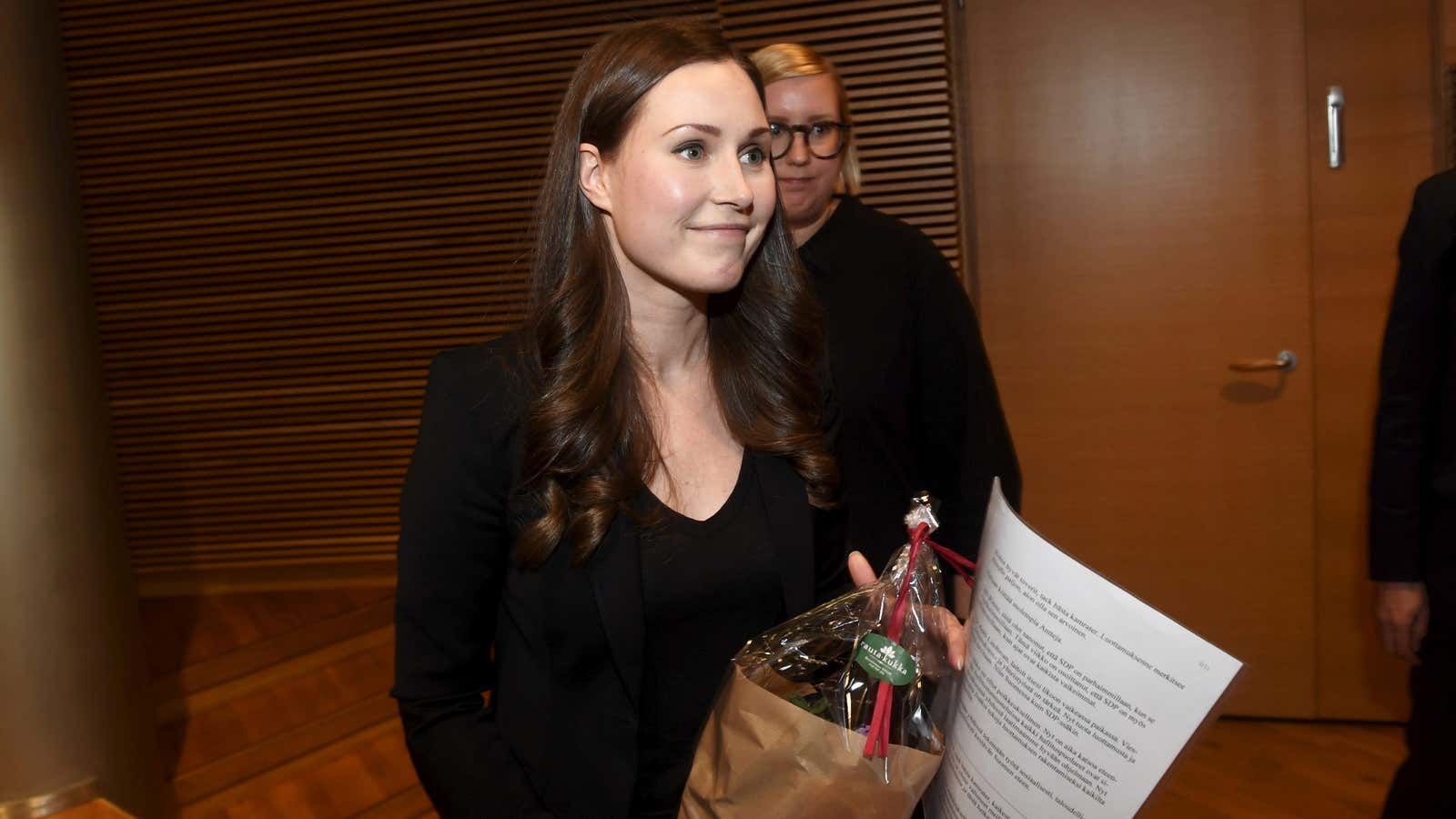Finland has been at the forefront of flexible work schedules for years, starting with a 1996 law that gives most employees the right to adjust their hours up to three hours earlier or later than what their employer typically requires.
The country’s newly installed political leader, Sanna Marin, has upped the ante, though, proposing last year, prior to her installation as prime minister, to put the entire country on a four-day workweek or six-hour workday.
Marin, the world’s youngest sitting prime minister and the leader of a five-party center-left coalition, said last year the policy would allow people to spend more time with their families and that this could be “the next step” in working life. (The Finnish government has clarified that the issue is not currently on its agenda.)
Marin is not the first politician to recently float the idea of scaling back work hours. Neighboring Sweden tested out six-hour work days a couple of years ago. And the UK’s Labour Party said in September that if elected, it would bring a 32-hour working week to the UK within 10 years. (It wasn’t elected, however, and details on how the hours would be structured were in any case vague.) In France, the standard work week is 35 hours, reduced from 39 hours in 2000.
A slew of companies around the world have been running their own experiments lately. Perpetual Guardian, a small New Zealand firm that helps clients manage financial estates, trialed a four-day work week before formally adopting the policy in November 2018. Its CEO, Andrew Barnes, is now an evangelist for the idea. In Ireland, a recruiting firm called ICE Group shifted to a four-day workweek and found that people’s habits changed, with staffers taking fewer breaks and checking social media less often.
🎧 For more intel on the companies testing shorter weeks, listen to the Work Reconsidered podcast episode on the four-day workweek. Or subscribe via: Apple Podcasts | Spotify | Google | Stitcher.
Both firms are small—Perpetual Guardian trialed the schedule with 240 employees; ICE Group has a staff of about 50 people in Ireland. But larger companies have been experimenting, too. Microsoft Japan, for example, implemented a four-day workweek this past summer. The company said employees reported being 40% more productive, and that the policy was particularly popular among younger workers.
While shorter work weeks can bring clear benefits to employees’ well-being, they also can be difficult to implement. The Wellcome Trust, a science research foundation in London, dropped plans for a four-day workweek last year, saying it would be “too operationally complex to implement” for its staff of 800.
But for those that have latched onto the idea, there is the prospect of baking even more flexibility into the system. At Perpetual Guardian, for example, a four-day workweek isn’t the only model; after measuring the productivity of its staff during a typical, five-day workweek, the firm set a standard benchmark and then allowed its employees to work out how to get there in 80% of the time, which could mean fewer workdays per week, or shortened hours spread across five days.
Editor’s note: This article has been updated to clarify the scope and timing of Marin’s proposal, which was made in 2019 before she was prime minister, and which was recently picked up in the international press. News Now Finland explains the genesis of the news coverage here.
